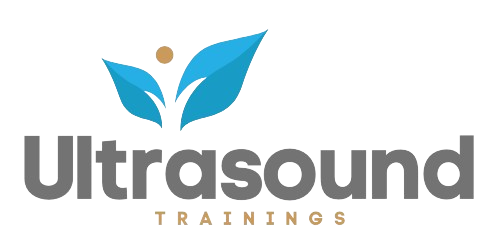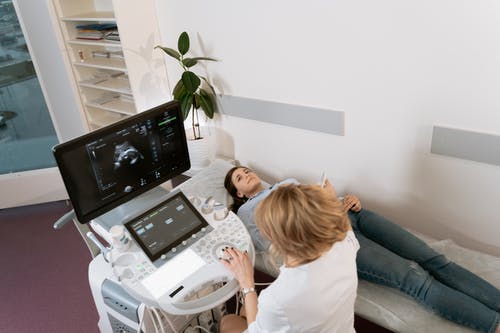In today’s healthcare landscape, ultrasound technology plays a pivotal role in diagnosing a variety of conditions across a wide range of specialties. With its non-invasive, cost-effective, and highly accurate nature, ultrasound has become a cornerstone in modern medicine. As the demand for trained ultrasound professionals continues to grow, many healthcare workers are considering adding ultrasound training to their skill set. But is ultrasound training right for you? In this comprehensive career guide, we’ll help you evaluate if this specialized field aligns with your career goals and aspirations.
What is Ultrasound Training?
Ultrasound training equips healthcare professionals with the knowledge and practical skills needed to use ultrasound equipment to capture images of the body’s internal structures. From obstetrics to cardiology and musculoskeletal imaging, ultrasound technology is used in a wide array of medical fields to assess, diagnose, and monitor patient conditions.
Training programs typically cover both theoretical and hands-on learning, focusing on anatomy, physiology, patient care, image interpretation, and machine operation. Ultrasound technologists, also known as diagnostic medical sonographers, are responsible for conducting scans, interpreting images, and communicating findings to physicians and other healthcare providers.
Who Should Consider Ultrasound Training?
Ultrasound training is not for everyone, but it can be an excellent fit for a variety of healthcare professionals who wish to enhance their career opportunities or specialize in a specific area. Let’s break down who would benefit most from ultrasound training.
1. Midwives and Obstetrics Professionals
If you’re a midwife or work in obstetrics, ultrasound is an invaluable tool for monitoring fetal development, detecting potential complications, and ensuring the well-being of both mother and baby. Gaining ultrasound training can enhance your ability to perform routine scans, make accurate diagnoses, and better support your patients during pregnancy.
Why Ultrasound Training Is Right for You:
- Ability to perform ultrasounds during pregnancy to assess fetal growth and monitor potential issues.
- Increased confidence and diagnostic capabilities, helping you provide comprehensive prenatal care.
- Enhanced ability to collaborate with obstetricians and other healthcare professionals.
2. Nurse Practitioners and Physician Assistants
For nurse practitioners (NPs) and physician assistants (PAs), ultrasound training can significantly expand your scope of practice. NPs and PAs frequently perform diagnostic procedures, and being trained in ultrasound allows you to assess conditions quickly, make immediate clinical decisions, and reduce the need for referrals or additional imaging.
Why Ultrasound Training Is Right for You:
- It can elevate your clinical skills, allowing you to perform in-office diagnostic imaging, making you more valuable to your practice or clinic.
- Provides an additional revenue-generating skill for private practices.
- Gives you the ability to perform procedures such as guided injections or biopsies, increasing your versatility.
3. Doctors and Specialists
Physicians, especially those in specialties such as obstetrics/gynecology, cardiology, or emergency medicine, can benefit from ultrasound training by improving diagnostic accuracy and enabling more efficient patient care. Whether you’re looking to incorporate point-of-care ultrasound into your practice or want to specialize in a specific area like musculoskeletal ultrasound, this training can expand your ability to serve your patients.
Why Ultrasound Training Is Right for You:
- Enhances your diagnostic capabilities in various specialties, from cardiovascular imaging to abdominal assessments.
- Point-of-care ultrasound (POCUS) enables quicker, real-time diagnoses, reducing patient wait times and improving treatment outcomes.
- Increases your patient satisfaction by offering non-invasive diagnostic services in-house.
4. Radiologic Technologists
Radiologic technologists who are already skilled in operating X-ray, CT, or MRI machines may find ultrasound training to be a natural next step in their career. By adding ultrasound to your skill set, you’ll be able to expand the scope of services you provide, enhancing your job prospects and career growth.
Why Ultrasound Training Is Right for You:
- Opens up more job opportunities and allows you to specialize in diagnostic imaging, such as sonography or vascular ultrasound.
- Ultrasound is increasingly in demand, and adding this skill can make you more competitive in the job market.
- Provides a less radiation-dependent method of imaging, making it appealing for both you and your patients.
Key Benefits of Ultrasound Training
Before diving into whether ultrasound training aligns with your career goals, it’s important to understand the unique benefits this field offers:
1. Growing Job Opportunities and Demand
Ultrasound technology is widely used across numerous healthcare settings. According to the U.S. Bureau of Labor Statistics, the demand for diagnostic medical sonographers is projected to grow by 17% between 2019 and 2029, much faster than the average for all occupations. This growth is driven by an aging population, advances in ultrasound technology, and a greater emphasis on non-invasive diagnostic procedures.
2. Competitive Salary
Sonographers and ultrasound professionals typically enjoy a competitive salary. The average salary for a diagnostic medical sonographer in the U.S. is about $75,000 per year, though this can vary based on specialization, experience, and geographic location. By acquiring ultrasound training, you’re positioning yourself for a stable and rewarding career.
3. Non-Invasive and Patient-Friendly
Unlike X-rays or CT scans, ultrasound is a non-invasive, radiation-free imaging method. This makes it a highly attractive option for patients, particularly in prenatal care, musculoskeletal assessments, and cardiovascular evaluations. As an ultrasound professional, you’ll be part of a growing movement toward safer, more patient-friendly diagnostic methods.
4. Flexible Career Paths
Ultrasound training offers flexibility in terms of where you can work and what you can specialize in. You can choose to work in a wide range of healthcare settings, such as hospitals, private practices, outpatient clinics, or even mobile ultrasound services. Moreover, ultrasound professionals have the opportunity to specialize in specific fields like obstetrics, cardiology, or musculoskeletal imaging.
How to Determine if Ultrasound Training Is Right for You
Now that you understand the benefits and career paths associated with ultrasound training, it’s time to consider whether it’s a good fit for your career aspirations. Here are some key questions to ask yourself:
1. Are You Interested in Expanding Your Clinical Skills?
Ultrasound training is a great way to broaden your diagnostic skills. If you’re passionate about improving patient care, expanding your clinical knowledge, and using cutting-edge technology, ultrasound could be an excellent fit.
2. Do You Enjoy Working with Technology?
Ultrasound training requires you to learn how to operate complex equipment and interpret images. If you enjoy working with medical technology and have a passion for learning about new devices and software, ultrasound technology could be a natural next step in your career.
3. Are You Comfortable with Patient Interaction?
Ultrasound professionals regularly interact with patients, taking histories, explaining procedures, and providing comfort during scans. If you enjoy building patient relationships and providing direct care, this aspect of ultrasound training could be very rewarding.
4. Do You Value Work-Life Balance?
Ultrasound technicians often have a more predictable work schedule compared to other healthcare professionals who work in emergency rooms or on call. If maintaining a healthy work-life balance is important to you, ultrasound may provide a more balanced lifestyle.
Conclusion: Is Ultrasound Training the Right Career Move for You?
Ultrasound training opens doors to numerous career opportunities across various medical specialties, providing professionals with the tools to make a meaningful impact on patient care. Whether you’re a midwife, nurse practitioner, physician assistant, doctor, or radiologic technologist, ultrasound training can help you enhance your skills, expand your career prospects, and provide more value to your patients.
If you’re ready to take the next step in your healthcare career, Ultrasound Trainings offers comprehensive ultrasound training programs designed to prepare you for success in this growing field. Our courses provide hands-on training, expert instruction, and valuable certification opportunities to help you achieve your professional goals. Are you ready to embark on your ultrasound career? Contact us today to learn more about how our ultrasound training programs can help you succeed!


